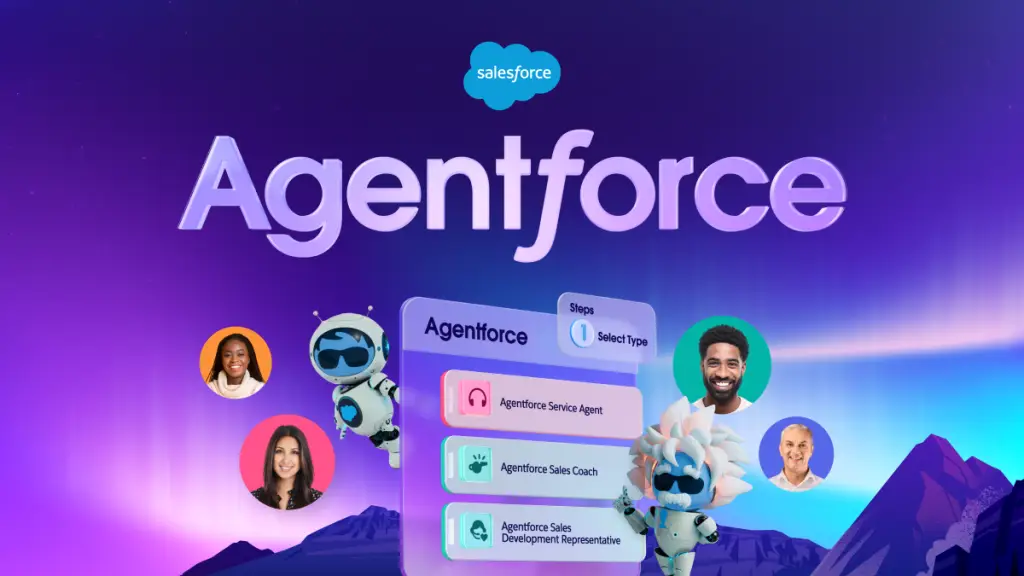What is Salesforce Marketing Cloud? Salesforce Marketing Cloud (SFMC) is a powerful digital marketing platform that enables businesses to connect with customers through personalized, data-driven campaigns across email, mobile, social, web, and more. As part of the Salesforce Customer Success Platform, Marketing Cloud empowers organizations to deliver the right message, at the right time, on the right channel — all while tracking customer behavior in real-time. In this article, we’ll break down what Salesforce Marketing Cloud is, its core modules, how it works, key features, benefits, common use cases, and what sets it apart from other marketing automation platforms. Why Salesforce Marketing Cloud? In a digital-first world, customer expectations are higher than ever. They demand seamless, relevant, and personalized experiences across every touchpoint. Salesforce Marketing Cloud allows brands to meet these expectations by turning customer data into actionable insights and marketing journeys. With it, marketers can: Build unified customer profiles Orchestrate cross-channel campaigns Leverage AI for personalization and insights Measure campaign performance and ROI Scale marketing automation across the customer lifecycle Whether you’re targeting new customers, nurturing leads, or re-engaging existing users, Marketing Cloud is designed to help brands of all sizes create smarter, more effective marketing strategies. The Core Modules of Salesforce Marketing Cloud Salesforce Marketing Cloud is made up of several powerful studios and builders. Each module has a specific role in creating, managing, and automating customer engagement. 1. Email Studio Email Studio is the backbone of Marketing Cloud. It lets marketers build personalized, responsive, and engaging email campaigns. With a drag-and-drop editor, dynamic content blocks, A/B testing, and robust segmentation, Email Studio helps businesses drive conversions through targeted email communications. Key Features: Drag-and-drop content creation Subscriber list management Dynamic content based on customer behavior A/B and multivariate testing Email tracking and analytics 2. Journey Builder Journey Builder enables marketers to create automated, multi-step campaigns that guide customers through a personalized journey. Whether it’s onboarding, re-engagement, or post-purchase follow-ups, Journey Builder helps deliver contextual messaging at scale. Key Features: Visual journey mapping Event-driven triggers Multi-channel campaign execution (email, SMS, push, ads) AI-powered recommendations via Einstein Real-time engagement tracking 3. Mobile Studio With Mobile Studio, businesses can communicate with customers via SMS, push notifications, and group messages. It’s ideal for real-time alerts, promotions, reminders, and location-based engagement. Key Features: Personalized SMS and MMS Push notifications for mobile apps Geo-targeting and mobile segmentation Time-sensitive alerts and campaigns 4. Social Studio (Now part of Salesforce Intelligence Platform) Social Studio allowed brands to manage, schedule, and analyze social media content across platforms like Facebook, Twitter, LinkedIn, and Instagram. It supported social listening, engagement, and publishing in one place. Note: Social Studio was retired in 2024 and its features have now been integrated into Salesforce Data Cloud and Intelligence Platform for a more unified experience. 5. Advertising Studio Advertising Studio connects CRM data with advertising platforms to create highly targeted ad campaigns on Google, Facebook, LinkedIn, and Twitter. It allows marketers to re-target existing customers, suppress audiences, and acquire lookalike leads. Key Features: CRM-based ad targeting Lead acquisition through social platforms Audience segmentation and suppression Cross-channel campaign attribution 6. Web Studio Web Studio supports content creation for websites and landing pages. It enables marketers to deliver personalized web experiences and collect customer data through forms and surveys. Key Features: Web page and microsite creation Data capture forms Content personalization Integration with Journey Builder and Email Studio 7. Interaction Studio (Now Personalization) Interaction Studio, rebranded as Salesforce Personalization, enables real-time personalization across channels. It helps marketers understand user behavior and dynamically tailor content, offers, and product recommendations accordingly. Key Features: Behavioral tracking and engagement scoring AI-driven content and product recommendations Real-time web and mobile personalization Integration with email, mobile, and ad channels 8. Datorama (Now Marketing Cloud Intelligence) Marketing Cloud Intelligence (formerly Datorama) provides marketing analytics, visualization, and reporting tools. It brings data from disparate sources into one centralized dashboard for smarter decision-making. Key Features: Unified data model across channels Custom dashboards and reporting ROI and performance analysis AI-driven insights 9. Salesforce CDP (Now Data Cloud) Salesforce Data Cloud (formerly CDP) helps unify customer data from different systems into a single, real-time profile. It enables advanced segmentation, personalization, and activation of audiences across channels. Key Features: Real-time data ingestion and unification Identity resolution across devices Audience segmentation Activation across marketing, commerce, and service channels Einstein in Marketing Cloud – AI-Powered Marketing Einstein is Salesforce’s AI engine that adds intelligence across the Marketing Cloud platform. It helps marketers optimize engagement, predict customer behavior, and deliver personalized experiences at scale. Einstein Features Include: Einstein Engagement Scoring Einstein Send Time Optimization Einstein Content Tagging and Image Recognition Predictive Lead Scoring AI-powered Recommendations in Personalization How Marketing Cloud Works Salesforce Marketing Cloud integrates with the Salesforce CRM and other external data sources to offer a 360-degree customer view. Here’s a simplified flow of how it works: Data Integration – Data is collected from various sources: CRM, websites, apps, email, offline, and third-party platforms. Audience Building – Marketers create segments using filters like demographics, behaviors, purchase history, and preferences. Campaign Design – Using Email Studio, Mobile Studio, Journey Builder, and other tools, personalized journeys are created. Orchestration & Delivery – Campaigns are launched across selected channels, often triggered by real-time events. Analytics & Optimization – Engagement is monitored using Marketing Cloud Intelligence to improve future campaigns. Key Benefits of Salesforce Marketing Cloud 1. 360-Degree Customer View Marketing Cloud integrates data from multiple systems — CRM, eCommerce, social, mobile, offline — into a unified profile. This allows marketers to understand customer behavior deeply and craft personalized strategies. 2. Cross-Channel Campaigns Unlike platforms that focus on one or two channels, SFMC allows campaigns to run simultaneously across email, SMS, push, ads, and web. This omnichannel approach ensures consistent messaging and better engagement. 3. Advanced Personalization From simple name-based personalization to AI-driven content recommendations, SFMC allows hyper-personalized interactions based on real-time behavior and preferences. 4. Marketing Automation at Scale Journey Builder and Automation Studio empower marketers to create event-driven, rule-based workflows





